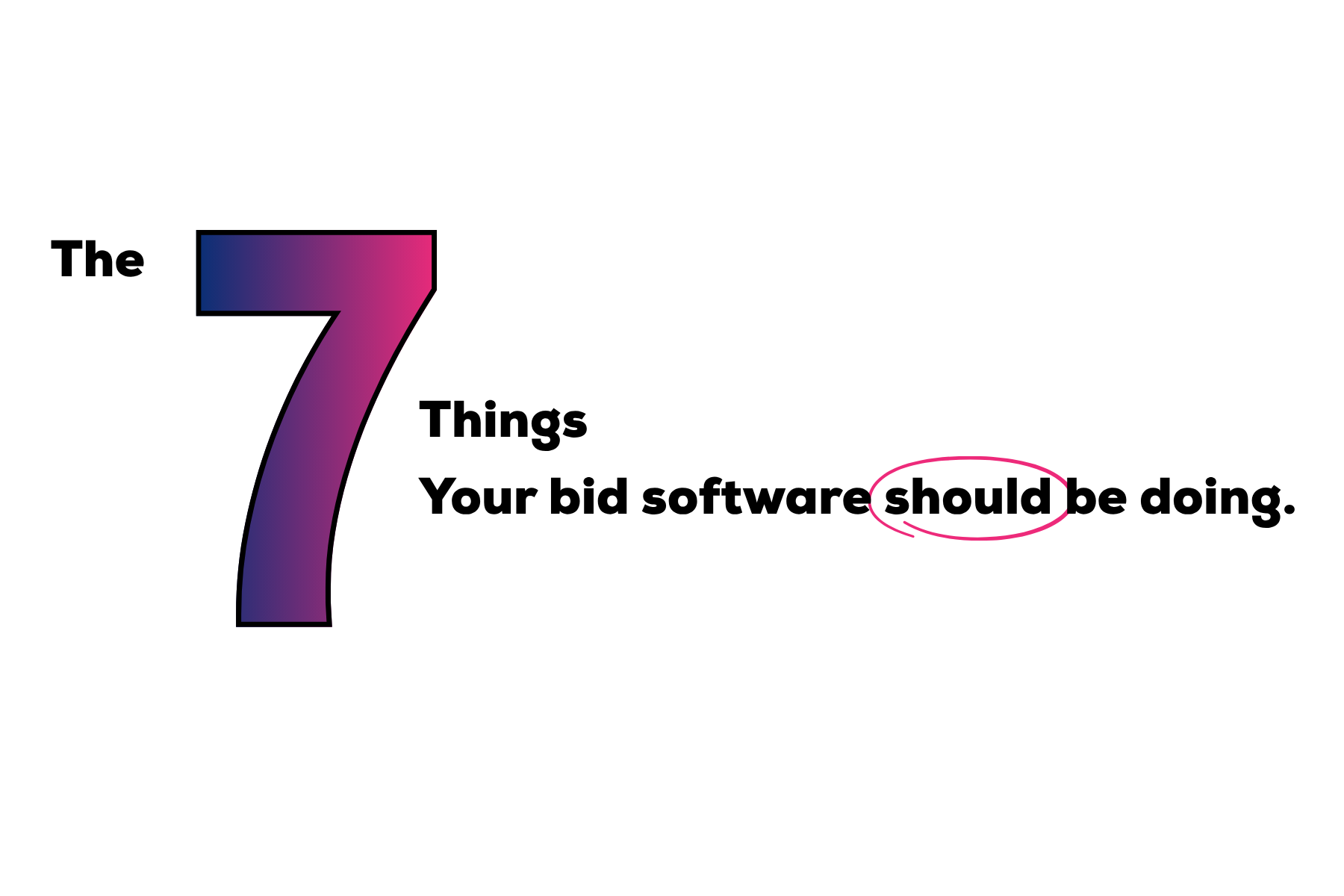
7 Things a Bid Platform Should Actually Do (But Most Don't)
The bidding function is a complex beast — and we're constantly surprised by how underrepresented it is in the software world.
At BidScript, our stance is simple:
Writing isn't the admin bit. It's the bid.
This is where the message is made, the win themes are sharpened, and the real value is created. Everything else should support that.
Another belief: pre-bid and post-bid workflows hold a ton of untapped value — but 90% of teams don't touch them, either because their software doesn't support it, or their process never evolved.
So, why this blog?
Because we keep hearing the same feedback from smart teams:
"We use the software as a content store and still write everything outside it."
"It's just AI layered onto legacy workflows."
It's time someone actually mapped out what a modern, intelligent bid platform should really offer.
1. Knowledge Management That Evolves, Not Just Stores
Knowledge management is a full-time f***ing job — and yet most bid tools treat it like a dumping ground.
Your content library isn't just a folder of past responses — it's the voice of your entire organisation. It should represent every department, every specialism, every edge you've got — and do it to the highest standard.
But without structure? It becomes a burning ball of chaos. Fast.
What platforms should be doing is autonomous refinement:
- Understanding what content is used most
- Flagging what's outdated, redundant, or low-quality
- Merging duplicates, surfacing high-performers
- Suggesting updates before someone submits the same crusty answer again
A living library that evolves with your org. Not one that just hoards Word docs like a dragon.
2. One Source of Truth
Large companies are already sitting on massive amounts of bid content — often across tools, teams, and regions. And most platforms? They just create a second copy of it.
Why would you want to duplicate and manage two separate content universes?
It doesn't make sense.
Instead, platforms should support a single source of truth — with:
- Real-time sync from your existing systems (SharePoint, GDrive, etc.)
- Clean version control
- Smart structuring that prevents content drift across teams
Pair this with autonomous knowledge refinement, and you've got a bid library that isn't just accurate — it's alive.
3. Smart, Flexible Access for the Whole Org
Not everyone involved in a bid is a "bidder".
Sometimes you just need input from Legal. Or Finance. Or the product team that forgot to document that key feature.
But most platforms throw up a paywall every time someone new needs to jump in — £5k per seat for a subject matter expert who logs in twice a month?
Get real.
Modern bid software should:
- Allow flexible, non-bloated contributor roles
- Let stakeholders contribute without a full license
- Respect the way cross-functional teams actually work
You shouldn't be rationing access like it's 2012. Let people help — without invoicing them for the privilege.
Check our BidScript's Project Horizon for more detail
4. AI That Analyses, Not Just Writes
"AI-powered" is the new "synergy" — everyone says it, no one means it.
Here's the truth: most platforms just throw GPT into a response box and call it innovation.
But real AI should do more than write paragraphs — it should think with you.
That means:
- Analysing the tender doc before you write a word
- Highlighting risks, compliance flags, and key requirements
- Suggesting relevant past responses based on context, not just keywords
Anything else is just a smarter typewriter.
5. Integrations That Actually Work
Here's the dirty secret: most integrations are either a) skin-deep or b) broken.
You get a badge on the pricing page and a Zapier link. That's it.
But a real bid platform should speak fluently with the rest of your stack — because your data lives everywhere:
- CRMs
- File systems
- Project tools
- Content libraries
It should pull in product specs from Productboard, pricing from Salesforce, and bios from Notion — without needing a 3-week onboarding call to wire it up.
No more "just export it and upload it manually".
We're past that.
6. Post-Bid Data You Can Actually Learn From
You won or lost. Cool. Now what?
Most platforms stop tracking once you submit — as if nothing valuable happens after the deadline. But the real insight is in the aftermath:
- Who contributed?
- What content was reused vs. written from scratch?
- Which responses led to wins?
- What bottlenecks slowed you down?
Track it. Learn from it. Improve the next one.
The best teams don't just write better — they review smarter. Your platform should help you do both.
7. Project Nudges That Aren't Your Problem
Your project/bid/tender manager isn't a calendar. Or a Slack bot. Or a task-nagger.
But most of the time, that's what they become — chasing updates, nudging SMEs, manually tracking deadlines in five different places.
Bid software should take that off their plate:
- Automated nudges and reminders
- Dynamic timelines based on content completion
- Real-time visibility into who's behind, who's blocked, and who's smashing it
Less chasing. More progress. Let humans lead the strategy — and let the platform handle the admin noise.
While most platforms focus on helping you write faster, BidScript is built to help you think, work — and win — smarter.